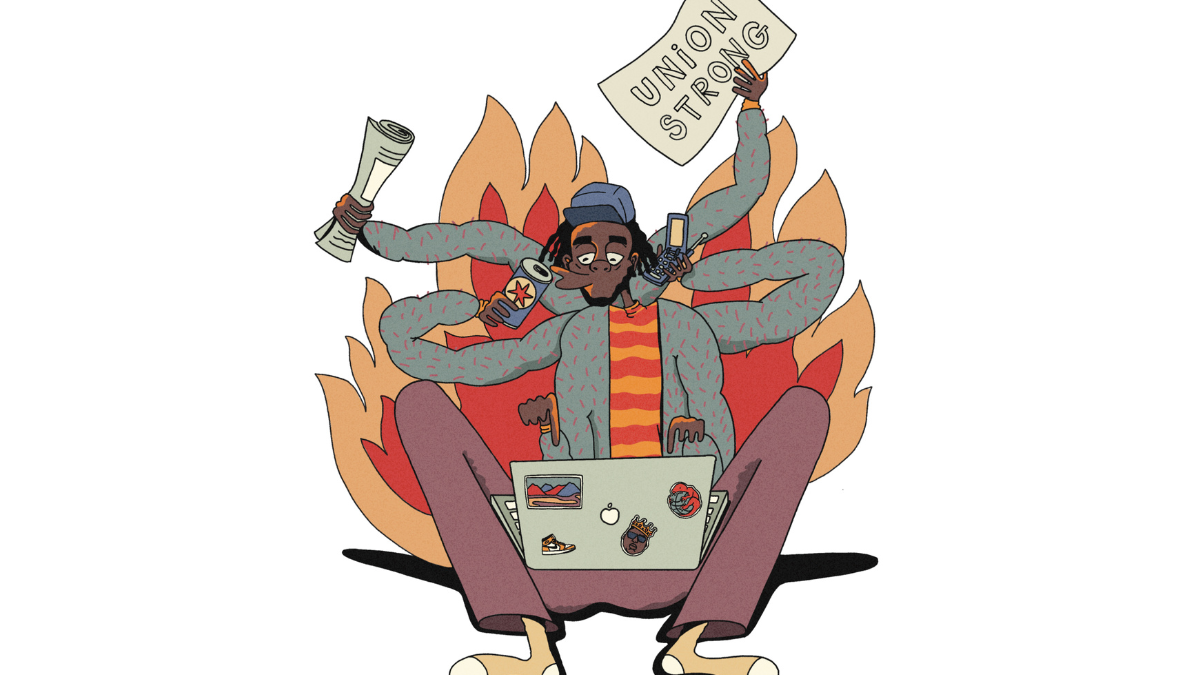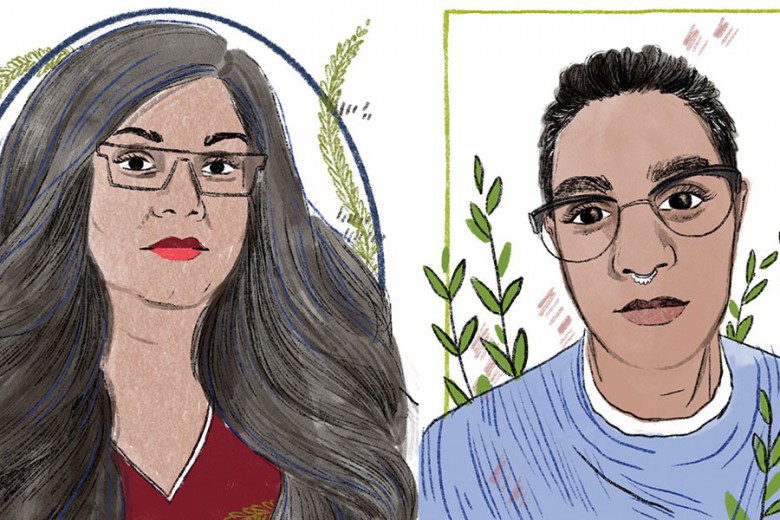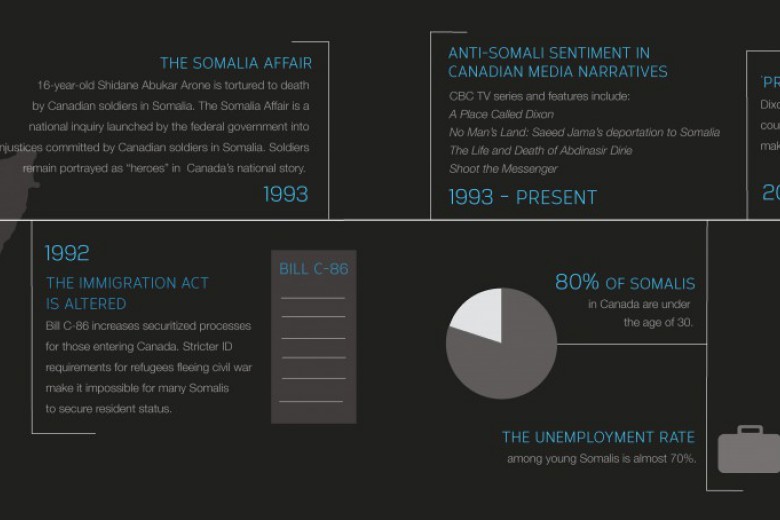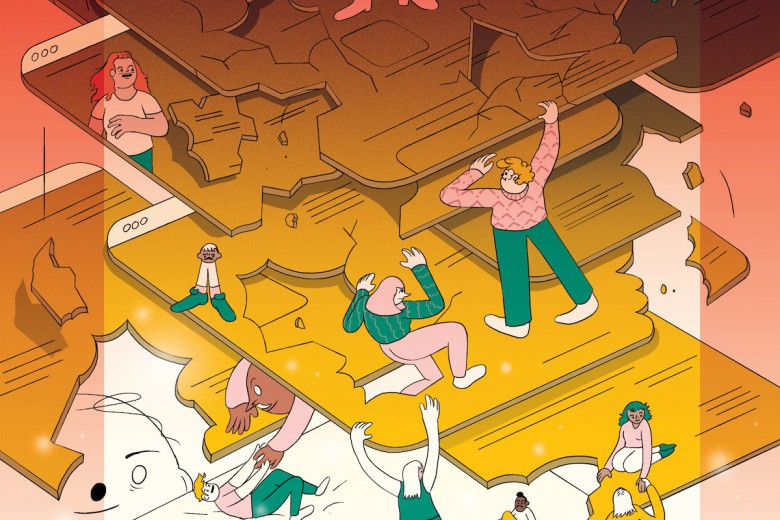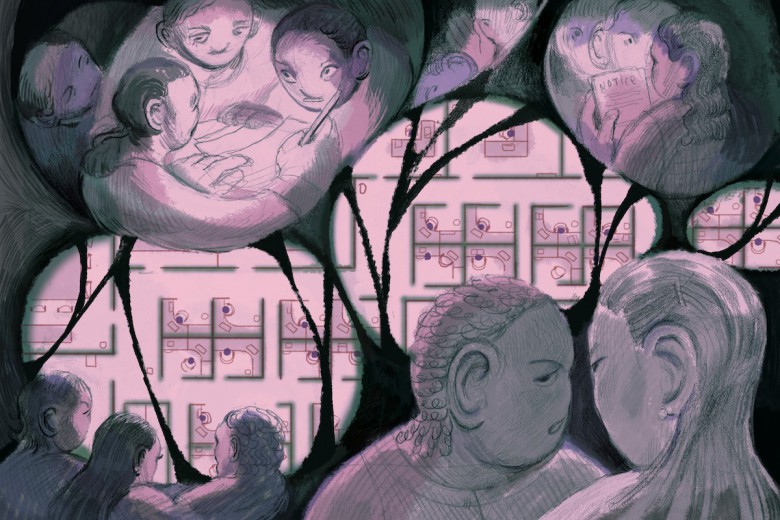Every one of us has heard a story of bad labour practices in media. From union-busting to unpaid internships, systemic racism to sexual assault, it happens in corporate and mainstream media, of course – but it’s no less present in independent and left-wing media.
At the anti-capitalist Commune Magazine in the U.S., an accusation of rape levelled against one of its founding editors led to half a year of internal turmoil, after which the magazine stopped publishing. At Current Affairs, when staff tried to start a worker co-op, the magazine’s editor-in-chief – a self-described socialist – fired them all. At Verso Books, a left-wing publishing house, the company handled its first-ever sexual harassment grievance so poorly that the female staff member who was harassed quit her job.
Closer to home, at the Canadian progressive news site rabble.ca, bad labour practices and racism led to a mass resignation of staff, including Matthew DiMera, the publication’s first Black editor-in-chief.
When bad labour practices have embedded themselves within the very publications trying to write into existence a more just world, what is to be done? Briarpatch invited DiMera and Nora Loreto, writer and president of the Canadian Freelance Union, to a conversation about bad labour practices in left-wing media.
Their conversation has been edited for length and clarity.
Nora Loreto
I think the last time we talked about this, you were dealing directly with some bad labour practices and systemic racism at an indie news outlet in Canada, right?
Matthew DiMera
That feels like so long ago, but it was winter of 2020 when I left rabble.ca. Sadly, negative work environments are common in media – but we rarely hear these stories. Toxic or abusive situations – whether at big mainstream publications or in independent media – are too often normalized, justified, and rationalized away. Most workers won’t or can’t tell their stories if they want to stay in the industry. Even when they do go public, other media generally won’t report on their stories. I can only speculate why this is. Maybe it’s because the industry is small and there aren’t many degrees of separation between most players. Maybe these bad practices are so widespread that journalists don’t want to throw stones from glass houses. Or maybe it’s because Canadian media seems to operate under a gentleman’s agreement to not take public swings at their competitors.
Nora
One of the problems with independent media in this country – and specifically today we’re talking about left-wing media – is that it’s still so dominated by whiteness. Intentionally and unintentionally, white supremacy seeps through all of these structures. White people dominate management positions. Hiring disproportionately favours white journalists. Stories about racialized people still place whiteness at the centre, and so on. If we’re not actively resisting white supremacy within media, it gets replicated over and over again.
Matthew
My feeling is that “progressive” places are worse at confronting and dealing with these issues. They’re resistant to being challenged or to being questioned, or to acknowledging that problems exist. When you suggest to white progressives that they might be racist or that they’re complicit in racist structures, immediately their backs go up. And the typical response becomes “I am a good person, how dare you impugn that I’m not?” instead of “I wasn’t aware of this; how can we deal with it?”
Many of these media outlets were first set up in opposition to a status quo – maybe they saw a lack of women’s voices in mainstream media or a lack of left-wing political commentary. But they often didn’t go deeper; they didn’t address the structural and systemic issues of racism or misogyny or poor labour practices. We’ve ended up with organizations that look an awful lot like the places they were supposed to challenge.
Nora
If you’re not actively changing these structures within your organization, then you’re unable to actually challenge these structures in the rest of the world. One of the things that I think a lot about is that we on the left don’t really allow organizations to die. There’s a life cycle to organizations – ending something should not be seen as a failure. But to compound the regular structures of white supremacy that you might find in a left-wing organization, then you also have people trying to protect their turf or their project. It’s that double whammy of existing in opposition to something and of always being in a position of atrophy or retreat. When the internal narrative is always “we’re under attack,” it justifies negative labour practices, which then have a bigger impact on racialized workers. Stepping back to say, “wait a minute, maybe this whole thing isn’t working. Maybe the negative experiences of our staff are being driven by the structural problems, which we are perpetuating ourselves because we’re trying to survive” – that’s a very difficult conversation to have.
Matthew
It’s the perpetual problem that power corrupts those who wield it, right? When that instinct for survival takes precedence over everything else. And so it doesn’t matter if your mission is still relevant, it doesn’t matter if you are doing good work, it doesn’t matter if you are not really espousing the values that you are preaching. The fight to survive becomes a proxy for meaning and value – a proxy that says, “yes, we still matter; yes, we’re still important.”
It is incredibly difficult to start an independent publication or outlet, because there isn’t consistent access to funding – I should know, since I’ve spent the last two years working to launch The Resolve, a new publication by and for people of colour. And the struggle to become financially solvent or to survive into next year allows some publications to avoid having difficult conversations about racial inequity, or sexism and misogyny, or workplace rights, or fair pay – they all take a back seat because we need to prioritize making sure we have money for next year.
It allows them to say, “Yeah, our labour practices are bad, but if we don’t deal with this survival problem, they won’t matter.” And I could maybe agree, if we were talking about a one-year crisis, but I know publications that have been around for decades, and they’ve never not been in that fight for survival.
Questions and criticism are seen as disloyalty and so it’s almost impossible to make things better. When I worked at rabble.ca, a group of staff and I tried different escalating tactics to address systemic racism and bad workplace conditions with management. We did everything we could to make our message more palatable in the hopes that they might actually listen and not take it as an attack. We didn’t issue a press release. We didn’t apply public pressure – we were really cognizant of not wanting to hurt the publication. And yet it didn’t matter. The leaders responded as if we were trying to destroy them. We were all contract workers, which was part of the whole problem.
Nora
Which is a deliberate method of control. Let’s be clear – that’s actually key to this whole issue.
Matthew
Absolutely. At rabble.ca, there had been several previous times where staff were on the path to unionizing. And it had been blocked every time with various tactics. When workers are precarious, management can isolate them, they can cut off their income, or any other tactic that you can think of.
When, in 2020, we sent a formal letter expressing our concerns to the publisher, management immediately went on the defence. More than once, when staff criticized management, management responded by questioning that staff person’s job performance. Some of us eventually quit because we felt that the workplace was becoming too hostile to bear; others burned out.
A lot of this stuff is an open secret and yet we don’t talk about it publicly. In our society – and in leftist or progressive circles – it’s considered worse to talk about racism than it is to be racist. And it’s worse to talk about a progressive organization’s bad labour practices than it is to actually have bad labour practices. I don’t know how to reconcile that.
Nora
Yeah. I had a similar experience trying to unionize workers at rabble.ca several years before you and it was derailed by management. Our point in unionizing was to exactly do a lot of things that you said. Our complaints were mostly about precarity in the contracts and employee status. The resistance was so intense – I was smeared and a lie about me was sent to rabble.ca staff. After many, many months of trying, the key organizers of the union drive quit. And so the whole thing collapsed just exactly as you described in your situation.
I’ve seen very similar situations happening at not just media organizations, but also other progressive not-for-profits. The way to address this stuff has to be through changing the conditions of the job. This is where media workers need to have the courage to actually start shaming some of these individuals publicly, placing it on their reputations. But as leftists, we don’t want to do that. We don’t want to cut down someone who’s apparently a comrade, right? And we certainly don’t want to do it if someone’s got a little bit of power – if they’re the president of a national union or maybe they sit on an important board.
But if anybody’s hiding behind the cloak of being progressive to justify poor work practices, I have no respect for that, and no one should have respect for that. Frankly, they can go to hell. They’re a rat. I don’t care what the progressive bona fides are, they are a rat.
Improving the lives of your workers – whether the issue is racism or sexism or precarious work – will make your product better and stronger, it will make you more trustworthy in the eyes of your audience, it will make your workers be proud of the work that they’re doing. And they will bring in their communities to your audience. This is an analysis that is really lacking within the bureaucratic left. And the bureaucratic left, from non-profit organizations right through to the NDP, they’re far too often interested in maintaining the little tiny piece of the pie that they have rather than meaningfully building left-wing power.
And so you have these multi-year struggles for survival and nothing else. You see generation after generation of people getting involved trying to make things better, burning themselves out, and getting the hell out. And it’s tragic.
It’s not an accident that we’re having this conversation at Briarpatch, where they have been very intentional in how they built their structures and in getting their house in order. They’ve found a formula that has worked. The quality of the magazine has shot through the roof; they’re nationally recognized and win awards. So there’s a very selfish argument in favour of doing this stuff. Of course, Briarpatch’s pay is still way too low and they still disproportionately publish white writers over racialized writers, but the active commitment to do better is what’s important.
Matthew
I agree that some things should just die if they can’t be reformed. Even if some of these organizations are becoming increasingly less relevant as time goes on, they continue to take up space and resources, while they support a more progressive version of the status quo that upholds all sorts of inequity. I think we need to push back harder. We need to do a better job of publicly shaming and holding people to account. This is a repeating cycle – but it’s also often the same bad actors within the organizations who continue to repeat these cycles. I worry that new crops of young progressive journalists working at the same organizations will be exploited again, in part because of our refusal to call things out publicly, whether it’s because we don’t want to get sued for libel or whether it’s the Western preoccupation with politeness. We support that exploitation, inadvertently, with our silence.
On the other side, I would like to know which organizations are actively working on doing better, so we can support them. I would love to see money redirected to organizations which are taking progressive values seriously. I know no one’s perfect, and everyone is doing things wrong in one way or another. But if we can’t have these conversations about accountability, where we can say, “Hey, this is a problem. What are you doing about it?,” then we’re just rearranging chairs on a sinking ship.
Nora
Things are better in the media world than they were a decade ago, where there were only, like, one or two shows. We have a growing number of impressive independent publications to work for. I’m not hearing the same concerns and complaints yet from staff or freelancers at a lot of these newer publications. And that’s really cool.
Matthew
What can we do pre-emptively to keep these new publications on track, so they don’t become the next generation of problematic, exploitative organizations? Can we make changes in the ecosystem to support and model public accountability and transparency?
That public element is so important – and I always see it missing. Organizations that issue public apologies and want to do better must commit to come back and publicly report on what they’ve accomplished, with a clear timeline. It cannot be done behind closed doors – which is what usually happens. We saw this with journalism’s so-called “racial reckoning,” when all these organizations, big and small, made public commitments after the Black liberation uprising of 2020. They issued statements saying “we’re committed to doing better.” Some hired diversity, equity, and inclusion experts. But we know from the workers that nothing’s really changed. We know that maybe there may have been some new processes or some investigations, but then the public pressure dissipated after the initial outrage of 2020 faded. No one’s looking anymore. No one’s holding them to their initial apologies and promises.
What I would love to see from some of these smaller independent outlets is more public commitments and public statements and forward-facing honest public conversations. I think a lot about the treatment of freelancers. Every freelancer wants to be paid more, because the standard payments in Canada are ridiculous. Some organizations haven’t raised their rates in decades. The Walrus pays $1 per word for print stories, which – though it’s on the highest end of what independent media pays – hasn’t increased since it was founded in 2003. It shows a stagnant industry standard for what’s considered “good” pay.
And it’s not just how much. Maybe you can pay your freelancers really fast, so they don’t have to wonder if they can make rent on the first of the month. Maybe you can simplify the process of sending payment, so they don’t have to chase you down to ask if their cheque got lost in the mail. Can newer independent media model something better and raise the bar of what is acceptable?
I worry that because many of these media organizations have so little in terms of financial resources, and because they’re publishing for a good cause, it’s really easy to exploit volunteer or underpaid labour, whether intentionally or not. Because it’s so often at the expense of people who really can’t afford it.
Nora
I think, though, we cannot expect managers and owners, even if they’re progressive, to just do the right thing. So I think this is where solidarity among writers themselves is really important.
On one level, if you’re gonna write for independent media, you have to expect to not be paid very much, which is a problem. The most progressive outlets in Canada cannot pay what they should be paying. But the ones that are paying quickly and that are paying what they can, I have a lot of respect for them. And so then the question becomes, how do we make sure that they don’t fall into old traps like relying on freelancers when people should be employees or resisting change because they’re afraid of losing funding? Again, this is why it’s really important to build solidarity. That can mean becoming a member of a group like the Canadian Freelance Union or being part of a Facebook group where you can compare notes with other writers.
Matthew
How do we address this question of silence? There’s such a power imbalance in the editor-freelancer relationship. As a freelancer you serve at the pleasure of the publication, and at any point they can blacklist you. There’s a surplus of writers and journalists, and the power is in the hands of a few. I don’t think whisper networks are enough. I experienced this when I was writing about some of the racial issues I encountered in workplaces. Even though I anonymized the perpetrators in the stories, I was the one who was seen badly because I had the temerity to say it out loud.
Nora
Yeah, I think that that’s unfortunately what it is – it’s a Canadianism. The reality is that people have to be ready to burn their reputations. Either you say it or you don’t say it. Those are the two options. And if you don’t say it, maybe you can operate in a world where you can get small kinds of improvements, or maybe you can get small improvements for someone who works there next, or that kind of thing. Again, I’m emphasizing the need for collective organizing and collective action.
Matthew
We’ve talked so much, and yet I don’t think we’ve even skimmed the surface of it.


